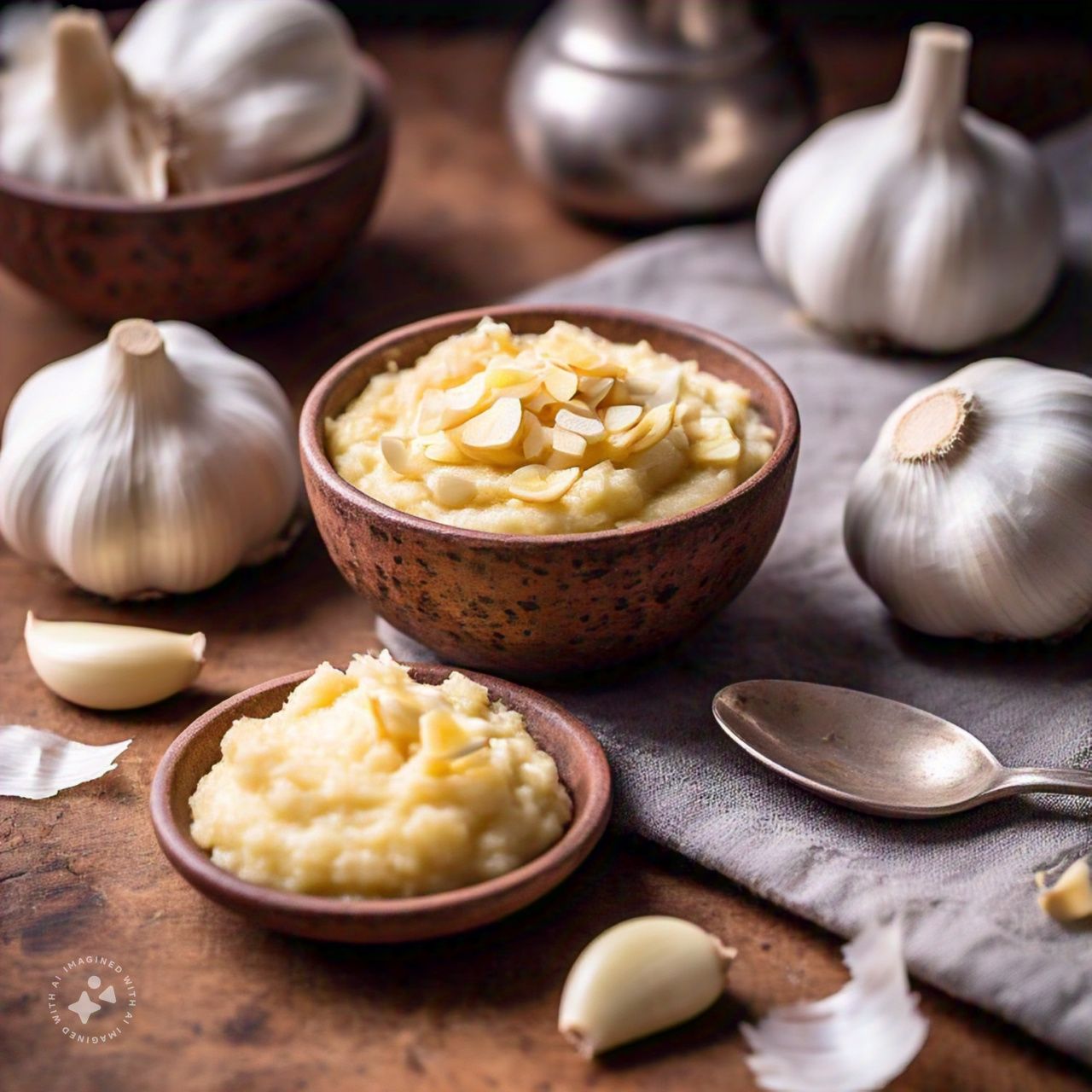Garlic paste is a versatile kitchen staple made by blending garlic cloves into a smooth texture, often with oil or water. This time-saving ingredient is a favorite in many cuisines, from Indian and Mediterranean to Asian and Latin American dishes, offering convenience and flavor enhancement.
Benefits of Garlic Paste
Nutritional Advantages
Garlic is packed with essential nutrients and compounds that offer numerous health benefits:
-
Rich in vitamins C and B6, manganese, and selenium.
-
Contains allicin, a compound with antibacterial and antioxidant properties.
-
Helps boost immunity and heart health.
Convenience and Time Efficiency
-
Eliminates the hassle of peeling and chopping garlic for every meal.
-
Can be stored for weeks, making cooking quicker and easier.
Flavor Enhancement
-
Adds a robust and aromatic flavor to a variety of dishes.
-
Blends seamlessly into marinades, sauces, and curries.
How to Make Garlic Paste
Ingredients:
-
2 cups of peeled garlic cloves.
-
2 tablespoons of oil (optional).
-
1-2 tablespoons of water (optional).
Instructions:
-
Add peeled garlic to a blender or food processor.
-
Blend into a smooth paste, adding oil or water for consistency.
-
Store in an airtight container in the refrigerator or freeze for longer use.
Common Uses of Garlic Paste in Cooking
Curries and Gravies
Garlic paste is a key ingredient in:
-
Vegetable curries: Adds a deep, savory base.
-
Lentil gravies: Enhances richness and aroma.
Marinades
-
Mix garlic paste with spices for tofu, paneer, or roasted vegetables.
Soups and Stews
-
Adds depth to soups like tomato or pumpkin.
Dips and Sauces
-
Combine with yogurt, herbs, or tahini for flavorful dips.
Cooking Tips for Garlic Paste
Best Practices
-
Use fresh garlic for the best flavor and aroma.
-
Saute garlic paste on low heat to avoid bitterness.
-
Pair with ginger paste for enhanced taste in Asian recipes.
Storage Tips
-
Freeze garlic paste in small portions using ice cube trays.
-
Always use a clean spoon to avoid contamination.
Comparisons: Fresh Garlic vs. Garlic Paste
Fresh Garlic
-
Advantages: Offers a crunchy texture and more pungent flavor.
-
Disadvantages: Requires peeling and chopping, which takes time.
Garlic Paste
-
Advantages: Ready to use, ideal for gravies and marinades.
-
Disadvantages: May lose some aroma over time.
Seasonal and Holiday Favorites with Garlic Paste
Winter Recipes
-
Creamy garlic soup.
-
Garlic-infused mashed potatoes.
Summer Recipes
-
Garlic herb dip for fresh vegetables.
-
Light garlic and lemon pasta sauce.
Holiday Recipes
-
Garlic bread with fresh herbs.
-
Garlic-spiced roasted vegetables.
Impact of Food Waste on the Environment
Reducing garlic waste has environmental benefits:
-
Garlic skins and scraps can be composted, enriching soil.
-
Using surplus garlic for paste reduces food waste.
-
Prevents waste from ending up in landfills, reducing methane emissions.
By utilizing garlic efficiently, you contribute to sustainability and a greener planet.
FAQs About Garlic Paste
1. Can garlic paste be frozen?
Yes, garlic paste freezes well. Store it in ice cube trays for convenient portions.
2. How do I prevent bitterness in garlic paste?
Cook the paste on low heat and avoid overcooking. Adding a pinch of salt can also help.
3. What type of garlic is best for paste?
Fresh and firm garlic cloves with no sprouts ensure the best flavor.
News and Information: Trends in Garlic Paste Usage
-
Popularity: With fast-paced lifestyles, pre-made garlic paste is becoming increasingly popular in kitchens worldwide.
-
Sustainability Focus: Many brands now offer garlic paste in eco-friendly packaging.
Conclusion: Why Garlic Paste Is a Must-Have in Your Kitchen
Garlic paste is a powerhouse ingredient that saves time, boosts flavor, and promotes sustainability. Whether you’re whipping up a quick meal or preparing a festive feast, garlic paste simplifies cooking and enhances every dish.





Share:
Tawa Fry Masala: Unlocking Bold Flavors with a Traditional Spice Blend
Turmeric Latte - Super Seed Mix: A Perfect Blend for Health and Wellness